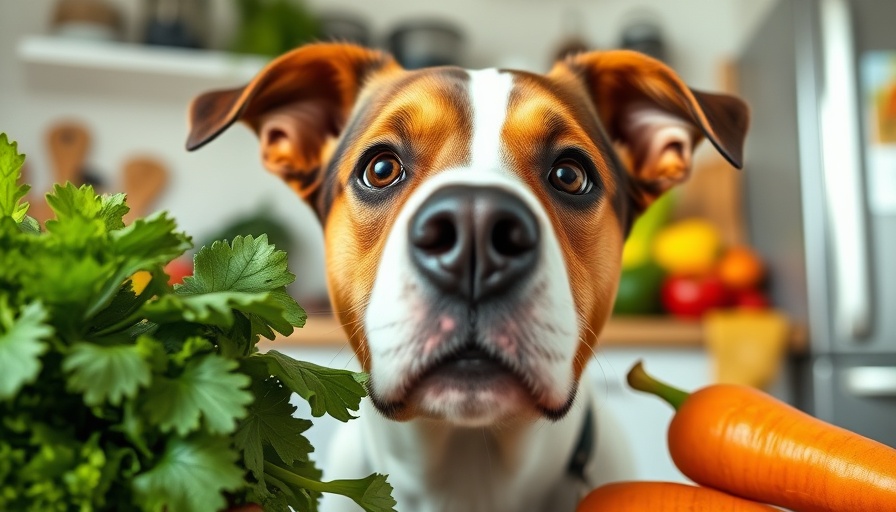
Understanding the Importance of Fiber for Pets
Just like humans, our furry companions—dogs and cats—need a healthy dose of dietary fiber for optimal digestive health. This essential nutrient plays a crucial role in ensuring that our pets remain healthy and active. It helps prevent various digestive issues and can even impact their overall well-being and energy levels. Recognizing the importance of dietary fiber can empower pet parents to make informed decisions about their furry friends' health.
The Two Key Types of Dietary Fiber
Dietary fiber is primarily classified into two types: soluble and insoluble fiber. Soluble fiber dissolves in water and assists in the absorption of nutrients, while insoluble fiber adds bulk, helping food move smoothly through the intestines. Understanding the different roles of these fibers can guide pet owners in enriching their pets’ diets with the right foods.
Health Benefits of Dietary Fiber for Your Furry Friend
The benefits of dietary fiber for pets are myriad, impacting various aspects of their health:
- Smooth Digestion: Insoluble fiber helps prevent constipation and ensures regular bowel movements, a crucial factor in maintaining digestive health.
- Weight Management: Fiber helps our pets feel fuller without extra calories, making it easier to manage their weight effectively.
- Nourishing Gut Bacteria: A good intake of soluble fiber feeds the beneficial bacteria in your pet’s gut, promoting a healthy digestive system.
- Blood Sugar Stabilization: Fiber slows digestion, helping to keep blood sugar levels steady, which is particularly beneficial for pets prone to diabetes.
How Much Fiber Should Pets Consume?
While dietary guidelines for humans recommend a higher fiber intake, pets require smaller amounts to maintain their health. It’s essential to avoid overloading them on fiber as it might lead to digestive discomfort. A general recommendation is to gradually introduce fiber through vegetables. For instance, you can feed your pet a teaspoon of fiber-rich vegetables for every 10 pounds of their body weight. Safe options include dandelion greens, green beans, Brussels sprouts, and various leafy greens.
Practical Ways to Enhance Your Pet's Fiber Intake
As a responsible pet owner, you can take proactive steps toward boosting your pet’s fiber intake:
- Incorporate Vegetables: Add fiber-rich vegetables to their meals or opt for supplements like psyllium husk powder for a fiber boost.
- Monitor Their Response: Introduce fiber gradually and monitor how your pet reacts to dietary changes to ensure their digestive health remains intact.
- Consult Your Vet: Always consult with your veterinarian before making significant changes to your pet’s diet to avoid complications.
Emotional and Human Interest Angle: The Pet Bond
The bond between pets and their owners transcends mere companionship. As pet parents, we are entrusted with the responsibility to ensure their health and happiness. Choosing to add fiber to your pet's diet is not just an act of care; it’s an investment in their vitality and longevity. Witnessing your furry friend thrive on a balanced diet strengthens the emotional ties and enhances the joy of pet ownership.
Conclusion: Keep Your Pup Fit and Happy
By understanding and incorporating fiber into your pet's diet, you’re taking important steps toward ensuring their health and happiness. Dietary fiber aids in digestion, supports weight management, and keeps your pet’s energy levels stable. If you haven't considered fiber yet, now is the perfect time to research and implement this vital component into your pet's lifestyle!
Want to learn more about pet health? Subscribe to our newsletter for expert advice and tips to keep your fur babies fit and flourishing!
 Add Row
Add Row  Add
Add 




 Add Row
Add Row 


 Add
Add
Write A Comment